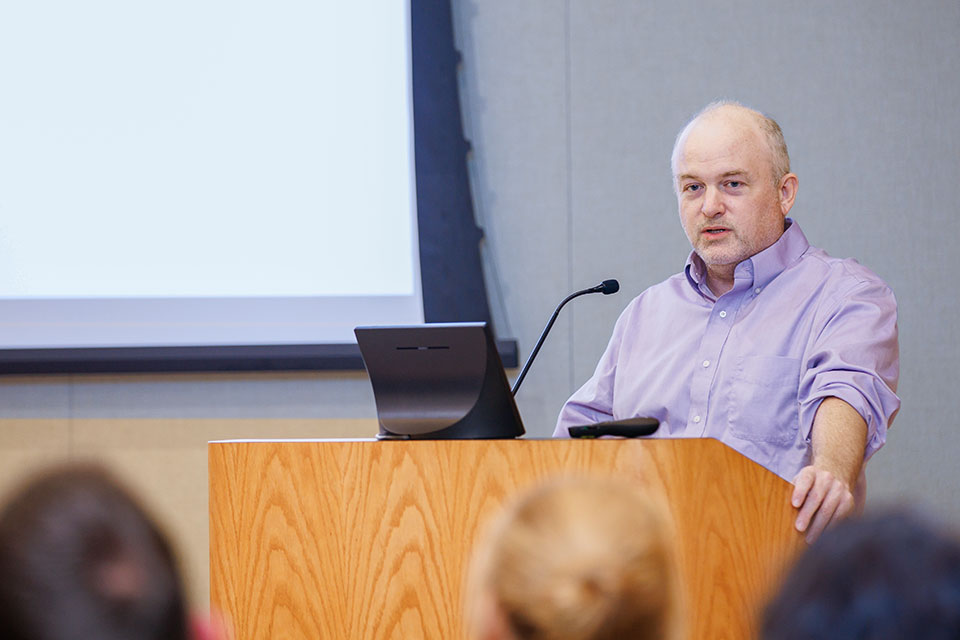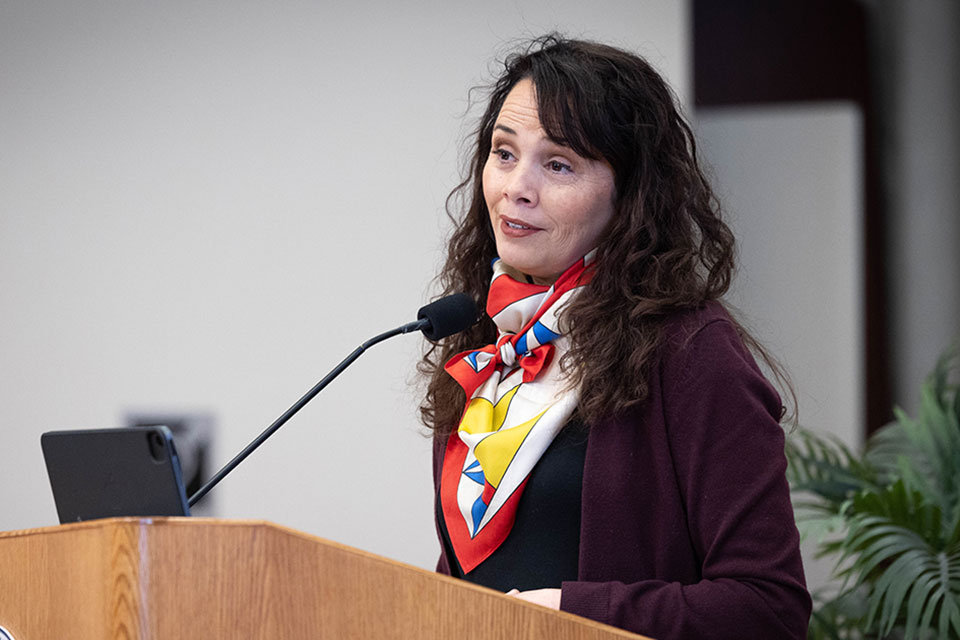Internet empowers activists — and autocrats, professor warns
Organizing is easier than ever, but protest does not always lead to democratization

By Steve Foskett
November 12, 2025
Very early on, the internet promised to democratize information and diminish authoritarians’ grip on power, but what has unfolded over the past 30 years has been more of a mixed bag, professor Steven Wilson explained in a recent lecture.
His talk was part of the inaugural celebration of the philanthropy that established the Richman Family Foundation Professor of Politics. Wilson, named the inaugural professor in 2023, closed out his role by making the case to the packed Shapiro Campus Center audience that the same immediacy and connectivity that makes the internet such an important tool for activists also allows regimes to censor information and keep tabs on citizens.
Communication is the lifeblood of politics, Wilson said. It’s why certain people win elections and certain people lose them, and why some authoritarian regimes are overthrown and some are not.
“So if we fundamentally change the way communication works, we're going to fundamentally change the way politics works,” he said.
The internet and social media have allowed activism and protest to flourish, but authoritarian regimes are also always looking for ways to leverage their power. Wilson said that despite a skyrocketing number of protests globally, the world is becoming less democratic.
Under some authoritarian regimes, there is a level of tolerance of protest and unrest organized through social media because it gives governments a way to gauge what citizens are concerned about — information that’s readily available in societies that have freedom of speech and a more open exchange of ideas. If people see that, after some amount of public protest, for example, that a pothole will be fixed in a city in Russia, or learn that a proposed copper smelting plant in a village in China is relocated, they might be less inclined to demand free and fair elections, he said.
Members of the Richman Saivetz families attended the lecture, and President Arthur Levine gave remarks. He presented Wilson with a chair to commemorate his tenure in the role, which has been taken over by Professor Alejandro Trelles, currently the Richman Family Foundation Assistant Professor of Politics.


